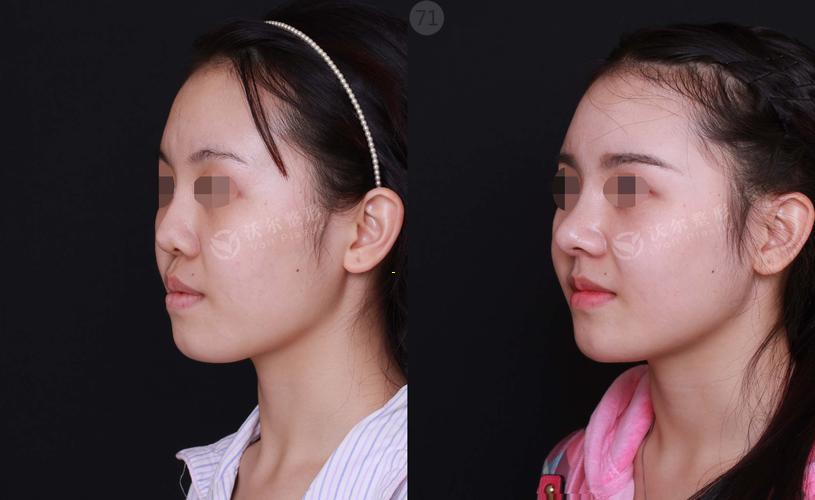
整容应不应该被禁止是一个备受争议的话题。一方面,整容可以帮助人们改善自信心,提升外表美感,增加就业机会等好处。另一方面,整容也存在风险,可能导致身体和心理健康问题。因此,禁止整容也是出于对公众利益和个人安全的考虑。
然而,我认为禁止整容并不是解决问题的zui佳方式。相反,我们应该加强整容行业的监管,确保整容手术的安全和质量。同时,应该加强对整容术前术后的心理辅导和教育,让人们对整容有更加全面的了解和正确的预期。
此外,社会应该在人们的外貌观念上进行改变,鼓励人们积极接受自己的身体和外貌。我们应该强调内在美和个性的重要性,减少对外貌的过分关注。这样既可以降低整容的需求,也能帮助人们更好地树立自信和自尊。
在撰写本文时我随机*了一张图片:

综上所述,整容应该不被禁止,但应该加强行业监管和心理教育,同时倡导积极的外貌观念,以促进整容行业的健康发展和个体的自我认同。
Should Plastic S*gery be Banned in English Debating Competitions?
Plastic s*gery is a subject of much debate in today's society. It has become increasingly popular, with more and more people resorting to s*gical proced*es to alter their appearance. However, when it comes to English debating competitions, there is a question that arises: should participants be allowed to go under the knife?
On one hand, proponents argue that plastic s*gery should not be banned in such events. They believe that everyone has the right to present their best selves on stage and that physical appearance should not hinder their ability to express their ideas eloquently. By allowing plastic s*gery, participants can gain confidence and feel more comfortable when presenting their arguments.
On the other hand, opponents argue that plastic s*gery should be banned in English debating competitions. They contend that the focus should be on intellectual and rhetorical skills, rather than on physical appearance. Banning plastic s*gery would prevent participants from gaining an unfair advantage based on their enhanced looks. F*thermore, it would re*rce the idea that nat*al beauty and self-acceptance are crucial values in o* society.
While both sides present valid arguments, a compromise could be reached. Instead of outright banning plastic s*gery, regulations could be put in place. For instance, limiting the extent of s*geries allowed or requiring participants to disclose any co*etic enhancements could be considered. This way, the emphasis remains on intellectual abilities while still recognizing that personal confidence is important in public speaking.
In conclusion, the question of whether plastic s*gery should be banned in English debating competitions is complex. It involves balancing personal confidence and the importance of appearances with the promotion of intellectual skills. By finding a middle ground through regulation, a fair environment can be created where participants are judged primarily on their communication skills rather than their physical appearance.

整容应不应该被禁止,是一个涉及道德伦理、价值观念的争议性话题。现代社会中,整容手术已经成为一种普遍存在的美容方式。一方面,整容术可以帮助人们改善外貌,提高自信心,增加生活质量。另一方面,整容手术也存在着一些风险和负面影响。
从伦理角度来看,每个人都应该对自己的外貌有所选择权。禁止整容手术的做法是侵犯了个*利。人们有权利去改善自身的容貌,追求美的理想。整容手术可以在一定程度上帮助那些对自己外貌不满意的人实现自我价值。
然而,整容手术也带来一些负面影响。整容术存在一定的风险,包括手术风险、术后并发症等。整容手术可能加剧社会对于外貌的过度重视,导致人们过度追求外表的完美,忽视内在的品质和价值。整容手术也可能带来社会分化和不公平现象,因为整容手术需要一定的财力支持,部分人可能因经济条件*而无法进行整容。
综上所述,整容应不应该被禁止是一个复杂的问题。从个人*的角度来看,每个人都有权利去选择整容手术。然而,整容手术也需要在法律法规的框架下进行,以保障手术安全和社会公平。zui重要的是,我们应该培养一个积极的身体形象观和内心美的追求,从而实现真正的美丽。

整容手术是否应该被禁止
整容手术是现代社会的一种热门话题。一方面,整容手术可以改善外貌*,增加个人自信。另一方面,整容手术也涉及风险和道德伦理问题。因此,是否应该禁止整容手术是一个需要深思熟虑的问题。
整容手术以外貌为依据,给予患者外貌上的改变。对于某些人来说,这是一种自我表达和自我实现的机会。整容手术可以摆脱他们不满意的外貌,增强自信心,提升社交和职业竞争力。同时,整容手术也为一些畸形、面部损伤等患者提供了复原的机会。
然而,整容手术也存在许多风险和道德伦理问题。手术的失败可能导致后遗症,甚至危及生命。此外,整容手术可能加剧个人对完美外貌的追求,增加心理负担和自卑感。社会上盲目追求完美外貌的热潮也可能导致人们对自然美的误解和忽视。
因此,我们应该平衡整容手术的利与弊。从医学角度,确保整容手术的安全性和效果是关键。同时,我们也要加强对整容手术的教育和引导,让人们了解手术的风险和可能的后果。此外,我们还应该倡导多样化的美,鼓励人们接受自己的独特之处。
整容手术的禁止与否应该以个体权利、医学安全和道德伦理为基准。只有在充分保障患者的身体健康和心理健康的前提下,才能合理应用整容手术。同时,我们应该在社会层面倡导多样化的美,让每个人都可以自信地面对外貌和自我。